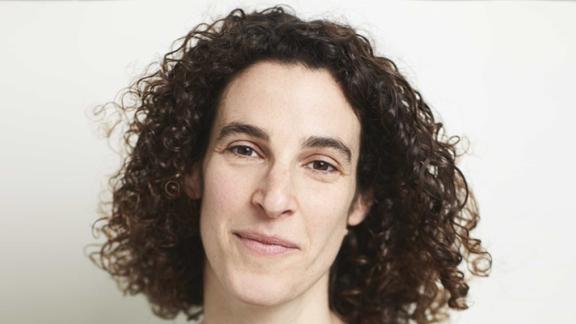NHS Reset: The long and winding road – the mental health of older people during and after COVID-19

In this blog, part of a series of comment pieces from NHS Confederation leaders, members and partners, Morgan Vine highlights the mental health needs of older people during the pandemic and after it.
Lockdown, and the unfolding impact of the COVID-19 pandemic, has been a tough time for many.
Research has linked pandemics to increased levels of post-traumatic stress disorder (PTSD) and other mental health problems such as anxiety and depression.
At the national charity, Independent Age, over the last few months we’ve been talking to people in later life more than ever. Many feel sad and low at not being able to spend time with people they care about, while others are worried about their own health. Some are grieving the loss of loved ones or are worried this might soon become a reality.
From over 2,500 respondents to our survey in April, 66 per cent of people in later life said they felt anxious or worried about the impact coronavirus could have on their life. And data from the Office for National Statistics show that 88 per cent of COVID-19 deaths in Wales and England in March and April were of people aged 65+.
The swathes of deaths being reported in the news is increasing people’s anxiety and opening up old wounds. Penny shared:
“I’ve been watching the government press conference every day. The death toll is mounting. I feel so sad that so many have died; those towards the end of their life who didn’t choose to die this way; those who have gone before their time, who had so much more to give. When I watch these stories, I start reflecting on my life and on those I have lost in the past.”
Regardless of your age, grief is hard to deal with. Research from our 2018 Good Grief report highlighted that the people most at risk of being negatively affected by bereavement are:
- older
- have experienced multiple bereavements in a short space of time
- feel their loved one didn’t have ‘a good death’
- or experienced traumatic circumstances around the death.
During lockdown, the number of people falling into these categories will rise. Most will not be able to be with their loved ones when they die – whether that’s in hospital, a care home or their own home – and funerals have been limited to only a handful of family members.
We spoke to Maggie recently who shared:
“A friend of mine recently lost a family member and had a funeral with only immediate family. Apparently, some people aren’t even allowed that. A lot of people might not be able to attend funerals. It’s sad because it helps knowing people care enough to go to the funeral, it’s part of the saying goodbye bit”.
The effects of this crisis on people’s mental wellbeing will be long lasting, and it’s essential that people in later life are informed about the support available and able to access it.
Worryingly, before the pandemic took hold, many older people were not receiving help to deal with grief or mental health problems:
- over a quarter of older people told us that they didn’t seek any help or support at all with their bereavement, even from family or friends (Censuswide survey on behalf of Independent Age, The Death of a Family Member and Bereavement, February 2017)
- fewer than one in five people aged 60+ have received counselling to cope with a bereavement (COMRES, Bereavement in Older People survey)
- people in later life had lower rates of access to talking therapies despite higher recovery rates and were more likely than younger people to be on medication for depression.
However, we know that with the right interventions people in later life can live with and recover from trauma. Christine shared with us:
“Up until last year I would not have said I had struggled with my mental health. That was until osteoarthritis decided to attack my lower spine. I struggled to overcome this major setback and became despondent, even thinking was there any point in carrying on. My doctor tried to help but I didn’t want to spend my life on powerful drugs. He suggested talking therapy, which I have been doing for 13 months. It helped me clear my head and concentrate on the things I could do, rather than those I could not. It assisted me to create a ‘tool box’ of ideas that I could draw upon when the pain flared. Then came the lockdown, I needed every tool in my box and this is how I am managing today and for the foreseeable future.”
Bereavement, and mental health problems, are much more than simply ‘one of those things’ that happens as you grow older. We want the government to ensure that people in later life are routinely offered mental health support and tailored bereavement interventions, such as counselling and talking therapies. We think it essential that these are provided in a range of accessible formats such as online, by phone, and in person once the pandemic is under control.
This is a traumatic time for many, but steps can be taken by the government, NHS England and NHS Improvement and professional bodies to ensure that people in later life are fully supported to recover from this pandemic, both physically and mentally.
At Independent Age, we’re keen to work with others across the health and care landscape to ensure that people in later life get the support they need.
Morgan Vine is head of policy and influencing at Independent Age. Follow them on Twitter @MorganVine_ and @independentage



